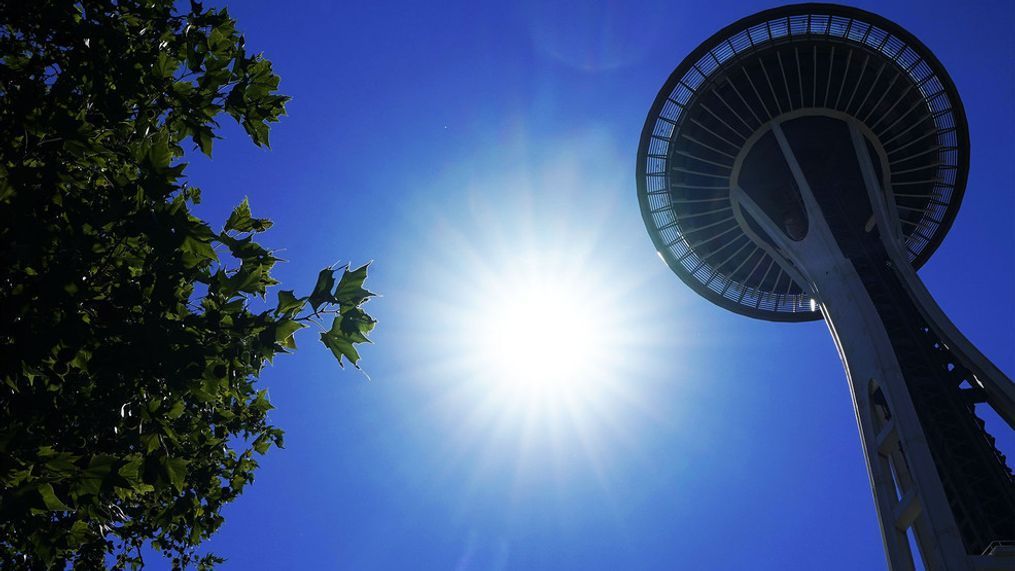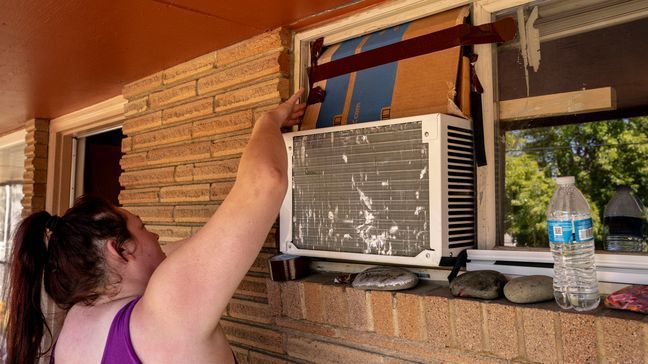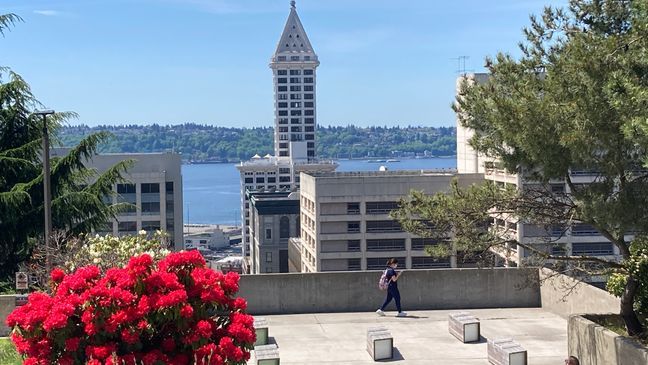Seattle's air conditioning usage rises amid escalating 'heat island' effect
SEATTLE — Fewer people are suffering through the heat wave throughout the Seattle-Bellevue area.
Not because they’re choosing to check into motels, which by the way, KOMO News found rooms available in the area, but not many.
About 53% of the homes in Seattle now have air conditioning, based on the 2021 Census. That’s an increase from 2019 when only 44% had AC.
The AC is more than needed here, especially when you consider that the majority of those who live in Seattle are located on what’s called a ‘heat island.’
These are urban areas filled with concrete, brick, and metal that all hold heat, so when there’s a heat wave like we have right now, heat islands grow even hotter than other areas.
“And that additional heat causes a lot of problems because it can be another 8, 9 10 degrees higher in Seattle, you have some people maybe 12 higher,” said Jen Brady, senior data analyst and research manager at Climate Center.
ALSO SEE | Mercer Island urges water conservation as reservoir levels drop dangerously low
Heat islands don't cool off as much at night, so many add window air conditioning units, which Brady told KOMO News only adds to the problem, spewing waste heat out onto the street.
“Air conditioners are a tricky one because we need them because we don’t want people to be sick or to be harmed by the heat,” Brady explained.
“Well, she doesn’t like the heat,” Anna Oliveira told KOMO News while holding her 15-month-old daughter Alice on a walk around Green Lake. Anna and her husband, Roberto, told KOMO News that air conditioning was an important criterion while house-hunting in Seattle.
“I am sure we are putting a lot of pressure on the energy grid, but it’s something that we know that we need for sure,” said Roberto Oliveira. Seth Swetman, who's been selling and installing air conditioning for 25 years in the Seattle area, told KOMO News there is a threshold to keep in mind.
“The problem is when people try to set their thermostat too low,” Swetman, the owner of Good Guys Heating, Air & Electrical told KOMO News. Swetman said the units are designed to be set at 70 degrees.
“You really shouldn’t be turning it below 70. It’s not designed to do that,” said Swetman, who recommends 75 degrees and said he keeps his unit set to 77 or 78. "It reduces the humidity so you pull the humidity out of the house, and it feels comfortable, so you don’t need it at 69-70. It’s not a good thing for the grid.”
Local utilities told KOMO News their grids are good to go, but there have been several local power outages.
“We had some lights flicker, and we were curious about that, but thankfully, we did not lose power,” said Omar Moran, who lives near Green Lake in Seattle. More than 5,000 customers of Seattle City Light lost power on Sunday after a damaged cable in a vault on Eastlake Blvd caused the smoke.
ALSO SEE | High temps buckle section of Skagit County highway while crews track road conditions
“When we experience extreme heat for longer periods, ambient temperatures underground remain high overnight, and the system doesn’t have the opportunity to cool down. This can lead to equipment drying out and overheating,” Seattle City Light told KOMO News in an email. KOMO News talked with Moran while he and his roommates were in between dips in the lake to cool off.
“Well, our building has one unit, centralized in the living room, so actually, we’ve been doing some sleepovers in the living room just cause it’s like the coolest spot of the apartment,” explained Moran.
Back to those air-conditioned hotel rooms, KOMO News did not find an abundance of vacancies, and those that were available ranged in price from $259 to $810 a night. At that cost, people could certainly get a room air conditioner to use night after night.
Brady told KOMO News that adding green spaces with plenty of trees for shade, plus awnings and other sunshades, can help cool heat islands.


